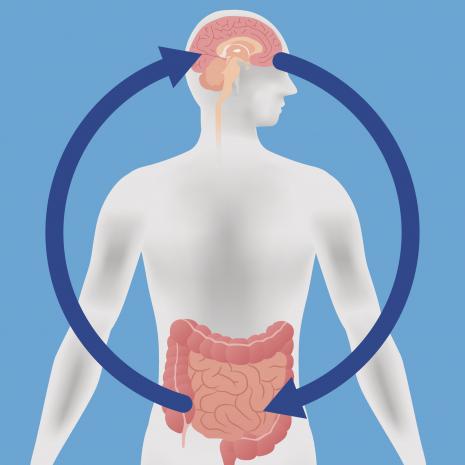
Breaking News
 Sunday FULL SHOW: Newly Released & Verified Epstein Files Confirm Globalists Engaged...
Sunday FULL SHOW: Newly Released & Verified Epstein Files Confirm Globalists Engaged...
 Fans Bash Bad Bunny's 'Boring' Super Bowl Halftime Show, Slam Spanish Language Performan
Fans Bash Bad Bunny's 'Boring' Super Bowl Halftime Show, Slam Spanish Language Performan
 Trump Admin Refuses To Comply With Immigration Court Order
Trump Admin Refuses To Comply With Immigration Court Order
 U.S. Government Takes Control of $400M in Bitcoin, Assets Tied to Helix Mixer
U.S. Government Takes Control of $400M in Bitcoin, Assets Tied to Helix Mixer
Top Tech News
 SpaceX Authorized to Increase High Speed Internet Download Speeds 5X Through 2026
SpaceX Authorized to Increase High Speed Internet Download Speeds 5X Through 2026
 Space AI is the Key to the Technological Singularity
Space AI is the Key to the Technological Singularity
 Velocitor X-1 eVTOL could be beating the traffic in just a year
Velocitor X-1 eVTOL could be beating the traffic in just a year
 Starlink smasher? China claims world's best high-powered microwave weapon
Starlink smasher? China claims world's best high-powered microwave weapon
 Wood scraps turn 'useless' desert sand into concrete
Wood scraps turn 'useless' desert sand into concrete
 Let's Do a Detailed Review of Zorin -- Is This Good for Ex-Windows Users?
Let's Do a Detailed Review of Zorin -- Is This Good for Ex-Windows Users?
 The World's First Sodium-Ion Battery EV Is A Winter Range Monster
The World's First Sodium-Ion Battery EV Is A Winter Range Monster
 China's CATL 5C Battery Breakthrough will Make Most Combustion Engine Vehicles OBSOLETE
China's CATL 5C Battery Breakthrough will Make Most Combustion Engine Vehicles OBSOLETE
 Study Shows Vaporizing E-Waste Makes it Easy to Recover Precious Metals at 13-Times Lower Costs
Study Shows Vaporizing E-Waste Makes it Easy to Recover Precious Metals at 13-Times Lower Costs
Could Probiotics Be the Potent Antidepressant You've Been Looking For?

It has long been established that gut bacteria are largely connected to immune function and metabolic health. However, researchers have only scratched the surface when it comes to their role in thinking, boosting overall mood, and addressing depression and other mental health conditions. A trio of studies confirms the favorable action of probiotics in tackling the growing problem of depression and anxiety disorders.
The gut microbiome and its critical role in human health has been receiving increasing attention among researchers, and with it, the newly acknowledged role of probiotics as a treatment for depression and anxiety. This is rooted in the growing consensus of the strong connection between your gut --also known as your gastrointestinal tract -- and brain.
According to experts, the microorganisms in your gut produce and express neurotransmitters that can affect mood, sleep and appetite. They are also believed to reduce inflammation, a known contributor to depression, as well as calibrate stress response and cognitive function.
Three studies that delve into how probiotic supplementation can assist in preventing or easing depression, published in 2019, follow:
*Scientists writing in the journal Nutrition linked probiotic food consumption with lower prevalence and severity of depression, particularly among men.[i]
Performing a cross-sectional analysis of U.S. data involving 26,118 individuals, they found that people who had the highest intake of probiotic-rich foods had significantly lower severity of depression as well as self-reported clinical depression.
Men who consumed the most probiotic-rich foods also demonstrated a significantly lower occurrence of clinical depression.
*A meta-analysis focused on 34 controlled clinical trials evaluated the effects of prebiotics and probiotics on depression and anxiety.[ii] It discovered that while prebiotics didn't have a notably different action from placebo for depression, probiotics yielded small yet significant effects for both depression and anxiety.
*A group writing in Brain Research probed the antidepressant-like action of the probiotic bacteria Lactobacillus paracasei PS23 given to mice treated with corticosterones to induce depression.[iii] Both live and heat-killed versions of the probiotic were shown to reverse chronic corticosterone-induced anxiety as well as depression-like behaviors.
Previous research from the Netherlands also determined that gut bacteria indeed affect negative thinking and cognitive function. Studying 40 healthy individuals for four weeks, the researchers found a significant decrease in negative thinking among those who supplemented with a probiotic each day versus those who received a placebo. In addition, the probiotic group exhibited lower cognitive reactions to sadness.

 Smart dust technology...
Smart dust technology...

